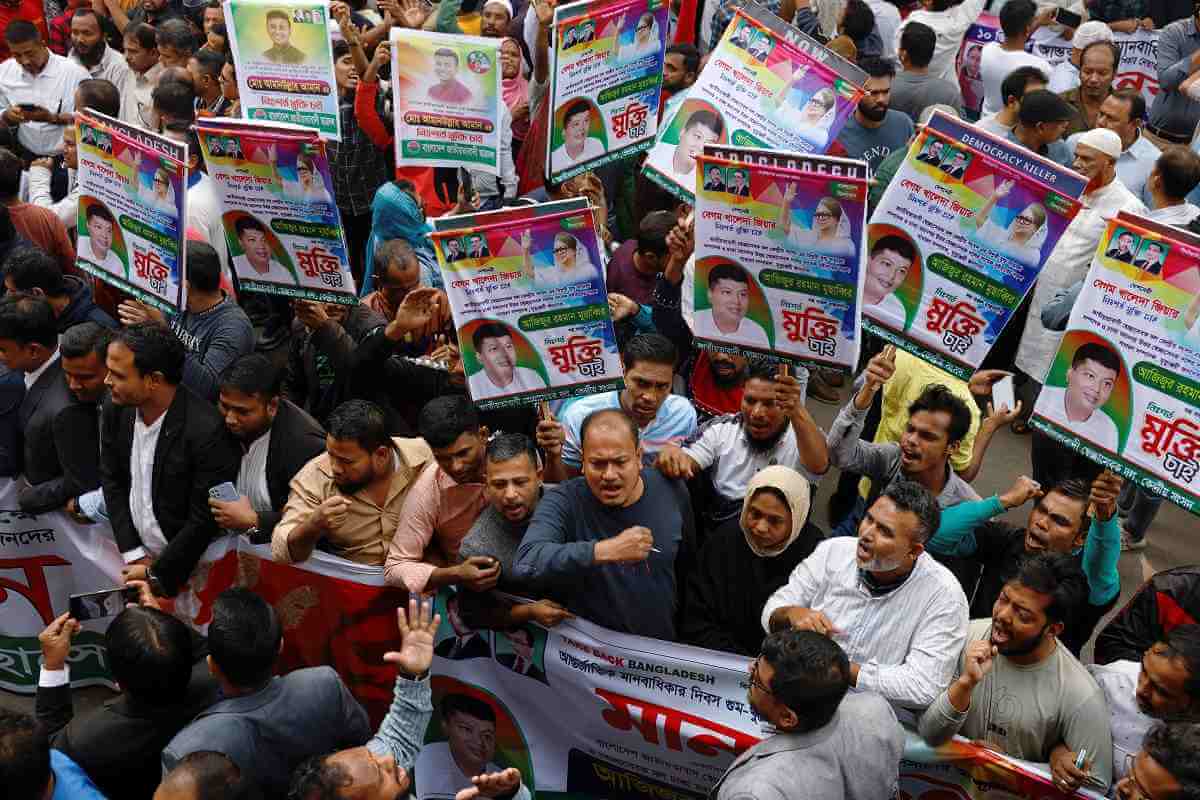On Wednesday, Bangladesh’s main opposition party, Bangladesh Nationalist Party (BNP), announced a non-cooperation movement urging people to boycott the upcoming general elections on 7 January.
The country has been marred with severe protests and violence as the polls draw closer, with opposition parties boycotting the elections and demanding that the government step down.
Non-Cooperation Movement
BNP Senior Joint Secretary General Ruhul Kabir Rizvi announced the non-cooperation movement during a virtual press conference.
Rizvi said that the decision was made by the party’s acting chief, Tarique Rahman, who is in exile.
“The present government of fascist (Sheikh) Hasina is completely illegal, undemocratic, and unconstitutional,” Rahman said in a message posted on social media.
He asserted that neither the administration nor the populace are required to comply with or heed any directives from the government.
He exhorted individuals to refuse to pay taxes, electricity bills, and other government-imposed expenses.
Rahman further requested that the election officials abstain from carrying out their duty during the next round of voting.
He went as far as to call banks a government “medium of plunder,” warning that people should think before depositing their money.
To take the ongoing movement to ultimate success, rising above partisan identity, irrespective of party, view, religion, and caste, I call upon every pro-democracy individual to commence non-cooperation with the present illegal government. By ensuring fascist Sheikh Hasina out of… pic.twitter.com/Djn6FoCuh8
— Tarique Rahman (@trahmanbnp) December 20, 2023
Claiming that the government had snatched all independence of the judiciary, Rahman said that his party leaders and activists should not respond to any court summons.
In order to extend support to the non-cooperation and boycott, BNP and its allies will conduct a mass campaign from 21-23 December.
They have also announced a nationwide road-rail-waterway blockade on 24 December.
Meanwhile, PM and Awami League head Sheikh Hasina has started her election campaign amid the calls for boycott.
Turmoil in Bangladesh
Bangladesh is headed for an election on 7 January. The election will most likely be a skewed affair, given the boycott by the BNP and other political parties.
BNP head and two time former PM Khaleda Zia has been disqualified from standing in the elections.
The opposition parties are urging the ruling Awami League government to step down for a poll-time caretaker government, a demand rejected by the League.
Political unrest has taken over the country, leading to the killing of 21 people after opposition parties led by BNP rallied together on 28 October, asking PM Sheikh Hasina to step down and allow for a free and fair election.
According to reports, over 25,000 BNP supporters have been arrested in the turmoil, around 1,250 have been handed jail terms, with cases filed against more than 93,000.
Human Rights Watch claimed in a report on 26 November that the government was arresting thousands in a ‘violent autocratic crackdown’ to eliminate competition.
The UN, the US, the UK, Australia, Canada, Japan, South Korea, and Norway expressed concerns regarding the violence and called for restraint.
India’s Stance
Unlike the US, which has demanded that Bangladesh conduct a free and fair election this time, India has termed the Bangladeshi election an ‘internal matter.’
India enjoys good ties with Hasina as opposed to the BNP, which has strained relations with New Delhi.
The BNP was accused of allowing Indian insurgent groups to operate from Bangladesh. The party also attempted to shun cooperation with India in trade, energy, connectivity, and security.
However, under Hasina, India has enjoyed fruitful ties with its neighbour.
India and China are on the same side in their stance of non-interference, as opposed to the US, which has imposed visa restrictions on those responsible for undermining the democratic process.

